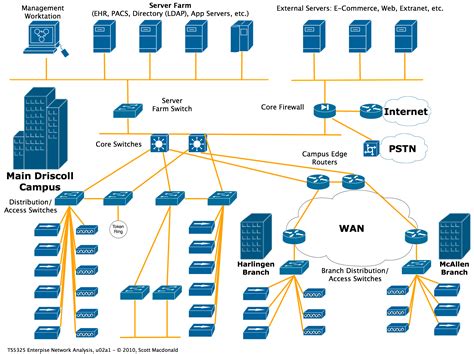Building Networking Connections: 12 Types & Tips

Networking is an essential skill in today’s professional world. It involves building and maintaining connections with other individuals and organizations to expand your professional opportunities and reach. Networking can open doors to new job opportunities, collaborations, mentorships, and valuable industry insights. In this article, we will explore 12 types of networking connections and provide tips on how to build and nurture them.
1. Professional Associations
Joining professional associations related to your industry is a great way to connect with like-minded professionals. These associations often organize events, conferences, and workshops where you can network with others in your field. Additionally, they offer online platforms and forums where you can engage in discussions and share knowledge.
2. Alumni Networks
Your alma mater can be a valuable resource for networking. Many universities and colleges have dedicated alumni networks that connect graduates from different years and disciplines. These networks often host events, job fairs, and mentorship programs, allowing you to connect with fellow alumni who share a common background.
3. Conferences and Trade Shows
Attending conferences and trade shows relevant to your industry is an excellent way to meet professionals, industry leaders, and potential collaborators. Take advantage of networking sessions, workshops, and social events during these gatherings to make meaningful connections.
4. Online Networking Platforms
In today’s digital age, online networking platforms have become increasingly popular. Websites such as LinkedIn, Twitter, and industry-specific forums provide opportunities to connect with professionals globally. Create a compelling profile, join relevant groups, and actively engage in conversations to expand your network.
5. Mentors and Mentees
Mentorship is a valuable relationship that can greatly impact your professional growth. Seek out mentors who have experience and expertise in your field. They can provide guidance, advice, and open doors to new opportunities. Similarly, consider becoming a mentor yourself and help others in their career journeys.
6. Industry Events and Meetups
Industry events and meetups are specifically designed for professionals within a particular field. These events offer a casual setting to network and connect with individuals who share similar interests. Be proactive in introducing yourself, exchanging contact information, and following up with new connections after the event.
7. Social Media Engagement
Social media platforms can be powerful tools for networking. Engage in conversations, share valuable content, and connect with professionals in your industry. By actively participating in discussions and providing insights, you can establish yourself as a thought leader and attract valuable connections.
8. Volunteer Organizations
Volunteering for causes and organizations that align with your values and interests not only allows you to give back to the community but also provides networking opportunities. Connect with fellow volunteers, board members, and other professionals involved in the organization to expand your network.
9. Professional Development Programs
Participating in professional development programs, such as workshops, seminars, and training courses, can help you build connections with individuals who are invested in their personal and career growth. These programs often encourage networking and provide opportunities to connect with like-minded professionals.
10. Cold Outreach
If there is a specific individual or organization you admire or want to connect with, don’t hesitate to reach out. Craft a personalized message explaining why you want to connect and how you believe the connection could be mutually beneficial. Be respectful of their time and follow up appropriately.
11. Industry-specific Groups
Joining industry-specific groups, either online or in-person, allows you to connect with professionals who share a common interest or work in the same field. These groups often organize events, webinars, and networking sessions, creating opportunities to build connections within your industry.
12. Informal Networking
Networking doesn’t always have to be formal or structured. Informal networking can happen during social gatherings, community events, or even casual conversations. Be open to meeting new people, ask questions, and actively listen to others. You never know where a casual conversation can lead.
Conclusion
Building networking connections is crucial for professional growth and success. By utilizing various networking strategies and platforms, you can expand your network and open doors to new opportunities. Remember to be authentic, proactive, and value-driven in your networking efforts.
Frequently Asked Questions
- How do I start building my network?
- How can I make my networking efforts more effective?
- How do I approach someone for a networking conversation?
- How can I maintain my networking connections?
- How long does it take to build a strong network?
Start by identifying your goals and the types of connections you want to make. Then, explore different networking opportunities such as professional associations, conferences, and online platforms.
Be genuine in your interactions, actively listen to others, and offer help or support whenever possible. Follow up with new connections and maintain regular communication to nurture the relationship.
Introduce yourself briefly and explain why you are reaching out. Be respectful of their time and offer value in the conversation. Ask thoughtful questions and show genuine interest in their work.
Regularly check in with your connections, share relevant resources or information, and offer assistance whenever possible. Attend networking events and conferences to meet in person and strengthen your relationships.
Building a strong network takes time and consistent effort. It is an ongoing process that requires nurturing relationships and actively seeking new connections. Be patient and persistent in your networking journey.
